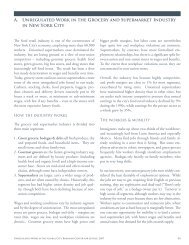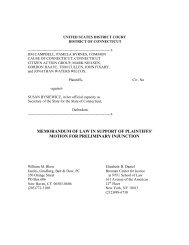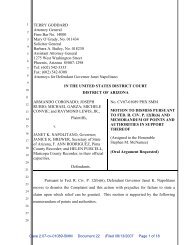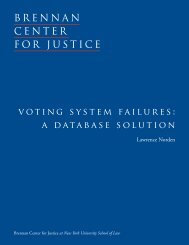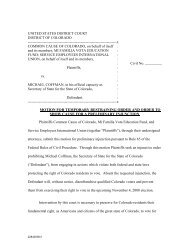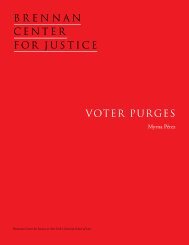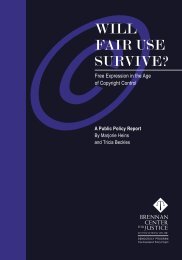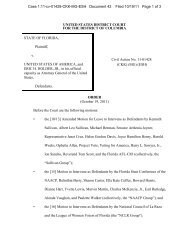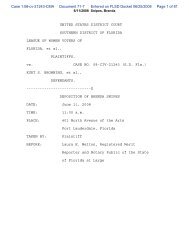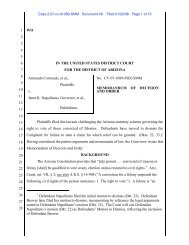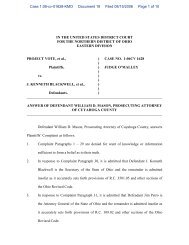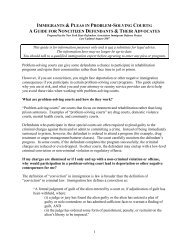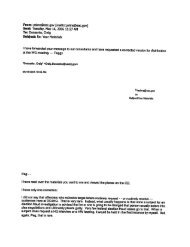1437 Bannock St . Denver , Colorado 80202 - Brennan Center for ...
1437 Bannock St . Denver , Colorado 80202 - Brennan Center for ...
1437 Bannock St . Denver , Colorado 80202 - Brennan Center for ...
Create successful ePaper yourself
Turn your PDF publications into a flip-book with our unique Google optimized e-Paper software.
in light of its knowledge of the interpretation of the law and its implementation. Schlagel v.Hoelsken, 162 Colo. 142, 425 P.2d 39, 42 (1967); see also, 2B, Singer & Singer, Sutherland<strong>St</strong>atutory Construction (2008), § 49.10 (“where contemporaneous interpretation has been calledto the legislature’s attention, there is more reason to regard the failure of the legislature to changethe interpretation as presumptive evidence of its correctness”)In 2012, the <strong>Colorado</strong> General Assembly considered H.B. 12-1267 (Exhibit C). Section 1of the bill added section 1-2-229:(1) Notwithstanding any other provision of law, any registeredelector whose registration has been marked as “Inactive-failed tovote” as of the effective date of this section shall from that date<strong>for</strong>ward be deemed to hold the status of an active elector.(2) By August 1, 2012, the Secretary of <strong>St</strong>ate shall update thestatewide voter registration database to reflect the elimination of“Inactive-failed to vote” voter status pursuant to subsection (1) ofthis section and, as appropriate, restore permanent mail-in voterstatus to those electors who had previously selected such status buthad subsequently been marked as “Inactive-failed to vote”.Section 2 of the bill repealed section 1-2-605(11) which governs actions involving “inactivevoters” in mail ballot elections. Section 8 of the bill specifically repealed § 1-7.5-108.5, whichdistinguished between “active” and “inactive-failed to vote” in the mail ballot statute.H.B. 12-1267 would have eliminated the status of “inactive-failed to vote.” The GeneralAssembly killed the bill. By refusing to enact the bill, the General Assembly affirmed theexisting interpretation of the statute.Clerk Johnson argues that H.B. 12-1267 cannot be used to determine legislative intent.(Clerk’s Motion <strong>for</strong> Summary Judgment, p. 16) Citing U.S. Fax Law <strong>Center</strong> v. Henry Schein,Inc., 205 P.3d 512 (Colo. App. 2009), she states that legislative silence is not a guide tolegislative intent. In fact, the case supports the Secretary’s legal analysis. The Court of Appeals26



![Download the Letter [PDF] - Brennan Center for Justice](https://img.yumpu.com/50139248/1/190x245/download-the-letter-pdf-brennan-center-for-justice.jpg?quality=85)
